President Xi Jinping inspected East China's Anhui Province from Tuesday to Friday to check the Huaihe River and learn about flood control, disaster relief and post-flood production recovery. He also consoled those affected by floods.
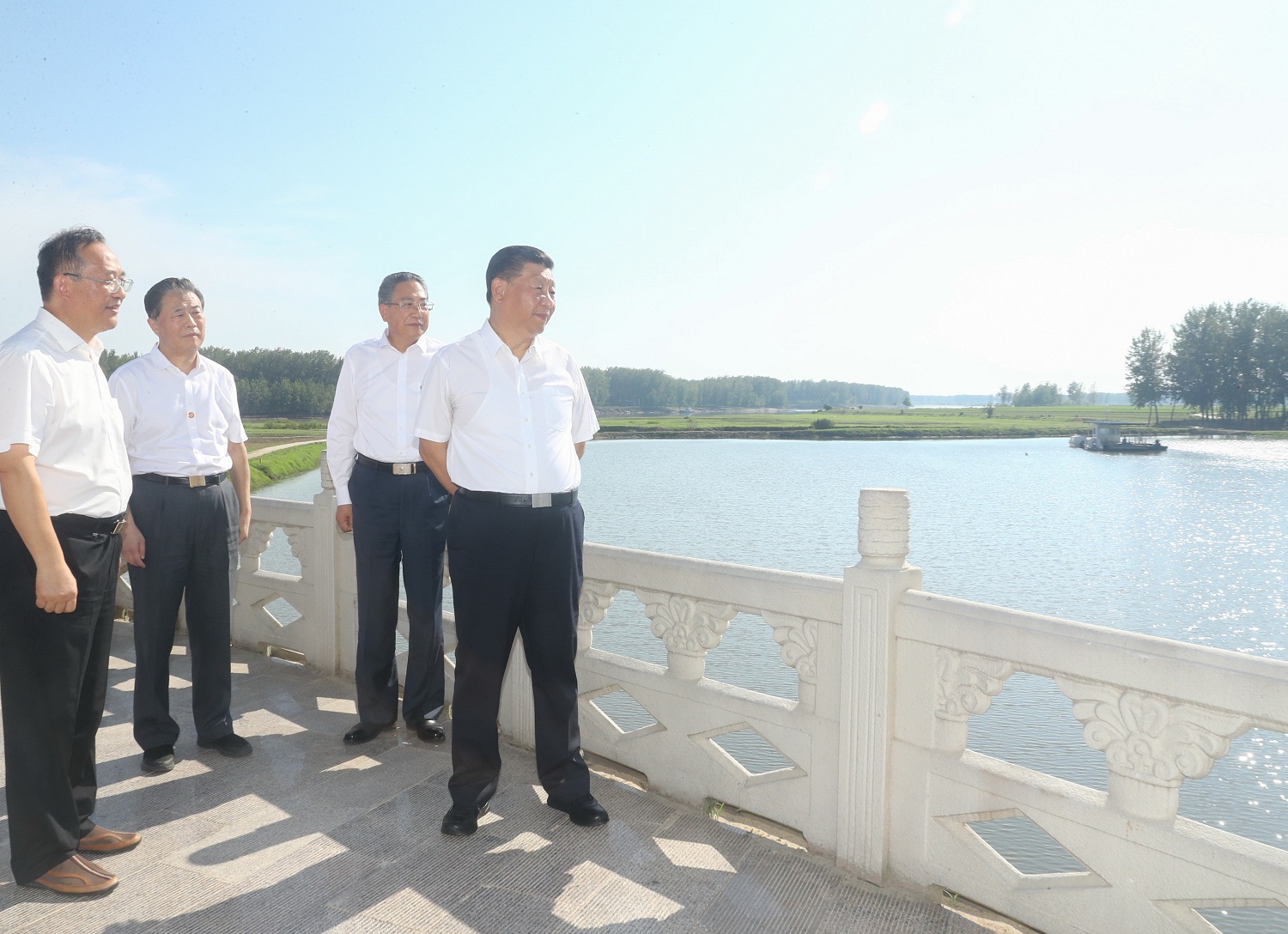
President Xi Jinping checks the situation of the Huaihe River at a floodgate in Funan County in Fuyang, Anhui, August 18, 2020. (Photo: Xinhua)
Since the 18th National Congress of the Communist Party of China (CPC), Xi has conducted in-depth investigations and surveys in many areas of Anhui and also joined in the deliberations of the Anhui delegation during the Two Sessions, the annual meetings of China's top legislature and its top political advisory body. Vivid stories were born and spread.
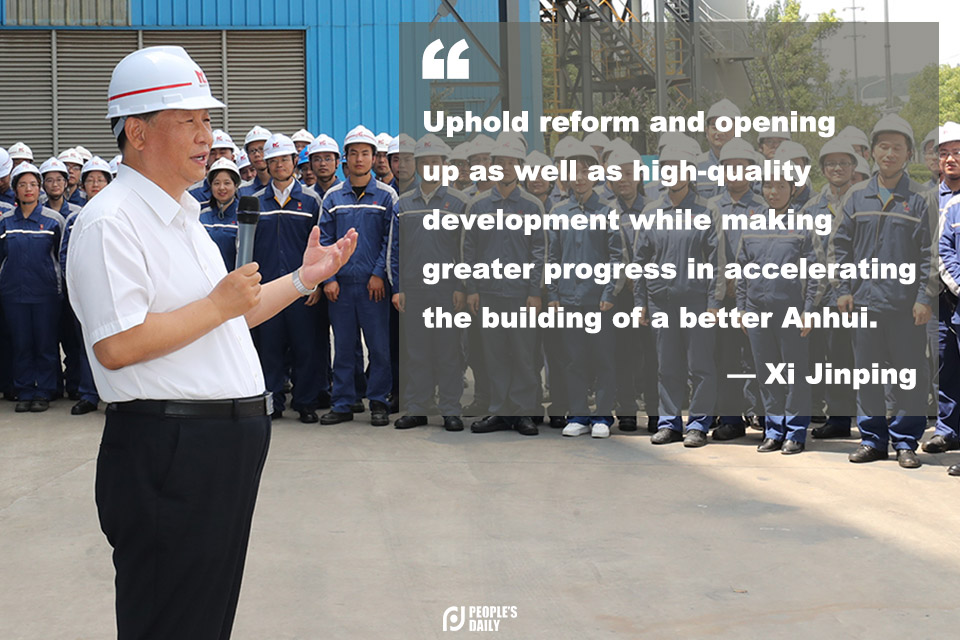
(Photo: Xinhua; Poster produced by Li Chunliu)
'I come here especially to see you all'
In April 2016, Xi visited Dawan village and discussed poverty alleviation plans with local cadres and the masses.
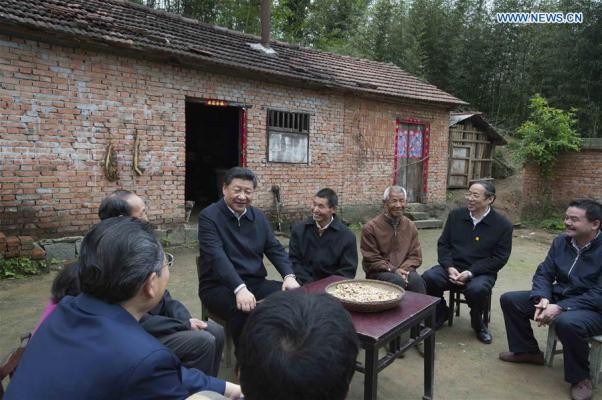
Xi talks with villagers about poverty alleviation in Dawan village of Huashi Township in Jinzhai County, Anhui Province, April 24, 2016. (Photo: Xinhua)
“It took one and a half hours to fly from Beijing to Hefei, another one-and-a-half-hour bus ride to Jinzhai, and then more than an hour to enter the mountains to come to you,” Xi told the villagers. “I come here especially to see you all.”
Xi asked considered questions when he visited the villagers’ homes: How are you doing? Is it still a bit cold in the house this season? How many acres of land do you plant? How many years can the tea be harvested? How many pigs have you raised? What's the price of pork?
In the farmyard, Xi listened to villagers’ ideas about the poverty alleviation policies and asked the CPC committees and governments at all levels to fight poverty with love for the people and in accordance with targeted poverty alleviation requirements of the CPC Central Committee.
With the attention of Xi and guidance of relevant policies, farmers living high in mountainous areas moved to the foot and grew tea on the mountain. They welcomed customers at home and sold goods online.
On April 29, Anhui announced that Jinzhai County where the village is located has officially been withdrawn from the poverty-stricken counties list.
Xi once pointed out that “If China wants to be strong, agriculture must be strong. If China wants to be beautiful, the countryside must be beautiful. If China wants to get rich, the farmers must get rich.”
As a major agricultural province, Anhui has for a long time made important contributions to food security and the country’s rural reforms. Xi attaches great importance to this.
In March 2014, when attending the deliberation of the Anhui delegation at the Second Session of the 12th National People’s Congress, Xi asked the local authorities to actively deepen rural reforms and continue doing a good job with work of the “three rural” issues: agriculture, rural areas and farmers.
In April 2016, Xi visited Xiaogang village in Anhui, presided over a rural reform symposium and delivered an important speech.
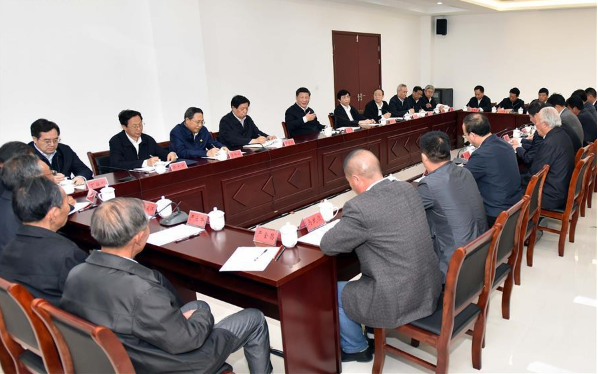
Xi presides over a symposium on rural reform in Xiaogang Village of Fengyang County, Anhui, April 25, 2016. (Photo: Xinhua)
In 1978, 18 farmers in Xiaogang village signed a secret agreement to divide communally owned farmland into individual pieces called household contracts, thus inadvertently lighting the torch for China's rural revolution.
Each piece was to be worked by a family. Their crops were then divided between the government, the collective and the families themselves.
During the inspection, Xi learned about the scene when 18 villagers pressed the red fingerprints and signed contracts.
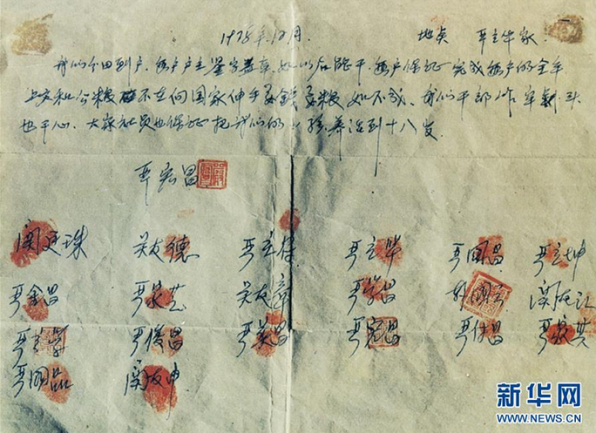
The contract signed by villagers in 1978. (Photo: Xinhua)
This process resulted in bumper grain production and the initiative was soon rolled out across the country, creating a system that combined unified and decentralized management.
Xi called the system “an important cornerstone” for CPC rural policy.
At the symposium, Xi emphasized that it was necessary to insist on solving the “three rural” issues as the top priority for the CPC. He also set out the key points for deepening rural reforms with the new situation.
Deepening rural reform depends on upholding and improving the basic rural operation system, sticking to collective ownership of rural land, adhering to the fundamental status of household management in agriculture and insisting on stable land-contracted relationship, Xi said.
A series of important speeches set the tone for a new round of rural reform.
Six years ago when participating in the deliberations of the Anhui delegation at the Second Session of the 12th National People’s Congress, Xi clearly proposed “the 3+3 Initiative,” consisting of three guidelines for ethical behavior and three basic rules of conduct: “Be strict with yourself in self-cultivation, in the exercise of power, and in self-discipline, and be earnest in making plans, opening up new undertakings and upholding personal integrity.” He called upon officials at all levels to behave well.
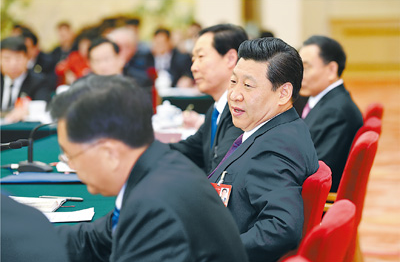
Xi participates in the deliberation of the Anhui delegation at the Second Session of the 12th National People’s Congress, March 9, 2014. (Photo: People's Daily)
'Strive unremittingly for the common goal'
In April 2016, Xi held a symposium with intellectuals, model workers and young representatives in Hefei, the capital city of Anhui, to welcome Labor Day (May 1) and Youth Day (May 4).
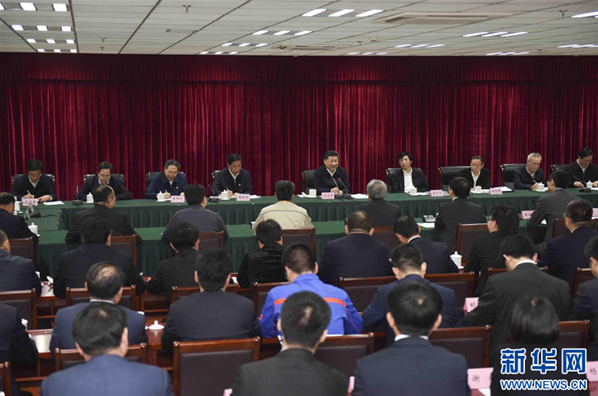
Xi speaks at a meeting with a group of scientists and researchers, model workers and young representatives in Hefei, Anhui Province, April 26, 2016. (Photo: Xinhua)
Communicating with intellectuals, Xi spoke about innovation and responsibility, specifically asking officials to place more trust in intellectuals, welcome their criticism and limit interference in their creative work.
Talking with model workers, Xi discussed persistence, praised their dedication and advocated the realization of life dreams and change of one’s destiny through honest work.
As for the young representatives, he talked about dreams and struggles, and encouraged them to innovate and start businesses.
“To realize the great rejuvenation of the Chinese nation is a very noble and arduous undertaking. It requires all Chinese sons and daughters to unite as one, mobilize all positive factors and work tirelessly for this common goal,” Xi said.
'I wish you all a happy innovation'
As one of China's most economically active, open and innovative regions, the Yangtze River Delta boasts strategic significance in the country’s modernization and further opening-up.
During his trip to Anhui four years ago, Xi inspected universities and research institutes to learn about implementation of innovation-driven development strategies and the innovative technological achievements.
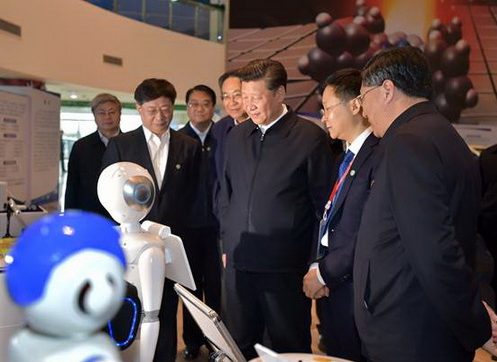
Xi visits the Institute of Advanced Technology in University of Science and Technology of China in Hefei on April 26, 2016. (Photo: Xinhua)
Xi noted that Anhui’s scientific and technological innovation efforts were fast, vigorous and effective.
He also said technological revolution and industrial transformation are in the ascendant in today’s world.
Xi called for a strengthened sense of mission, taking innovation as the biggest policy, and catching up.
He emphasized the core position of innovation in overall development at a symposium with intellectuals, model workers and young representatives held in Hefei.
Innovation was not only Xi’s advice to Anhui but also a universal requirement for the whole country.
(Translated by Zhu Naiqing, edited by Huang Jingjing and Yang Yang; Original story from Xinhua)


